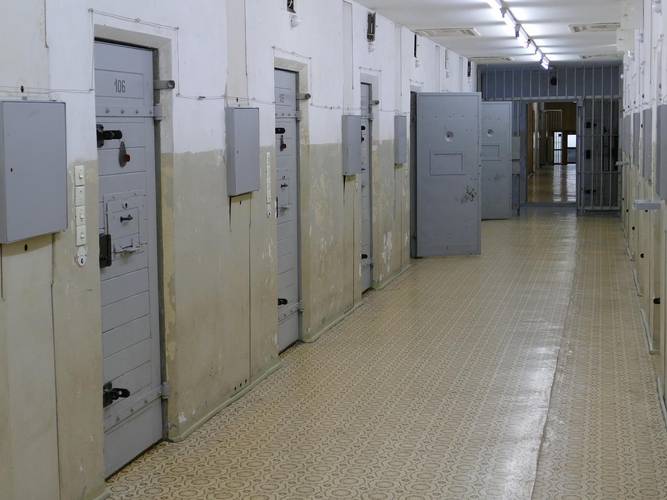The medical treatment of incarcerated persons is important, as every individual has the right to dignified treatment and health care. In doing so, it is also necessary to ensure adequate protection of personal rights and privacy and to maintain the confidentiality of medical data. In addition to the institution's staff, the medical staff and the institution where the medical treatment is carried out are also responsible for this.
* * *
The complainant informed the Ombudsman of the Republic of Slovenia (Ombudsman) that judicial police officers accompanied him to medical facilities outside the institution where he is serving a prison sentence. He emphasised that judicial police officers were present during his medical examinations, and the medical documentation was delivered to the medical institution in unsealed envelopes or brought to the institution's infirmary. Therefore, the complainant believed that the judicial police officers had the opportunity to get acquainted with the data concerning his state of health.
In this regard, the Ombudsman asked URSIKS for an explanation. The latter explained that judicial officers are present during the medical examination of imprisoned persons only in exceptional cases, when there is an appropriate security assessment regarding the need to ensure safety, order, discipline or prevent escape.[1] At the same time, judicial police officers must be aware of the importance of the confidentiality of the health data of imprisoned persons and are also obliged to protect it as a professional secret.[2]
URSIKS confirmed that, based on the assessment of suspiciousness, the complainant was escorted outside the institution in such a way that judicial police officers had him in their field of vision at all times. Their presence should therefore also be necessary during medical examinations in medical institutions outside the institution. In the cases highlighted by the complainant, URSIKS also explained that the documentation prepared for the escorts by the staff of the institution's infirmary was in open or unsealed envelopes. According to URSIKS, judicial police officers did not familiarise themselves with the contents of the envelopes. Medical documentation (referral with the date and time of examination) for the purpose of accompanying an incarcerated person to a medical organisation outside the institution is generally always prepared by (medical) staff in the institution's infirmary. At the same time, URSIKS mentioned that external medical institutions have different practices when issuing reports and medical documentation. In some cases, these results are supposed to be sent by mail, while in others they are handed over after an examination. In case of the latter, there could be an option for the medical staff to hand over the documentation in an unsealed envelope. After that, the judicial police officers only deliver the documentation to the prison infirmary and do not read it.
As a result of the petitioner’s warning that the documentation prepared for escorts by the staff of the institution's infirmary was in open or unsealed envelopes, Ljubljana Prison took the measure that the medical staff of the institution's infirmary, which prepares referrals for escorts, deliver it to the judicial officers at the escort office in a sealed envelope, while judicial police officers who conduct the escort hand this envelope to the prisoner before the escort begins. They also adopted the measure that after the medical examination, the prisoner takes the results himself and, after returning to the institution, puts them in a closed and locked mailbox, to which only the staff of the institution's infirmary will have the key. URSIKS expressed its fear that in some cases this could cause a delay in the delivery of documentation to the institution's infirmary.
According to the explanations received from URSIKS, the Ombudsman did not find any irregularities in the complainant's case. At the same time, the Ombudsman encouraged URSIKS to inform other prisons about the measures adopted at ZPKZ Ljubljana (relating to the handling of medical documentation), which it considers to be an example of best practice. The Ombudsman also recommended that, in connection with the expressed apprehension of URSIKS (which in individual cases may be completely appropriate), the most suitable solution should be additionally sought for the timely delivery of documentation to the institution's infirmary. 8.2-40/2022
[1] Paragraph 1 of Article 37 of the Rules on the implementation of prison sentences (PIKZ) imposes on prison institutions the duty to ensure the prisoner with confidentiality when communicating with a doctor, as well as when handing over medical documentation and during medical treatment. Medical examinations are thus performed out of sight and hearing of the institution's workers, unless the worker's presence is absolutely necessary to maintain safety, order, and discipline. In the event that the prisoner is sent for treatment outside the institution, the director of the institution orders measures to prevent the escape of the prisoner, determining the measures based on his security assessment, the doctor's opinion on his physical abilities, and other relevant circumstances (Paragraph 4 of Article 38 of the PIKZ).
[2] In accordance with Paragraph 1 of Article 235 of the Enforcement of Criminal Sanctions Act (ZIKS-1), judicial police officers are obliged to take care of security, order, and discipline by protecting the institution and prisoners, accompanying prisoners outside the institution, and performing other tasks specified by law. On the basis of Paragraph 2 of Article 43 of the Patients’ Rights Act (ZPacP), other persons may also be present during the medical examination, if the law so stipulates. On the basis of Paragraph 1 of Article 45 of the ZPacP, medical professionals, medical associates, and persons who, due to the nature of their work, have access to information are obliged to protect as a professional secret everything they learn about the patient in the course of their profession or work, in particular information about his state of health, his personal, family, and social circumstances, and information relating to the identification, treatment, and monitoring of diseases or injuries.

![[Translate to English:] Hodnik zapora [Translate to English:] Hodnik zapora](/fileadmin/_processed_/0/d/csm_OMEJEVANJE_SVOBODE__prison-4712883_1920__2__d3d4763149.jpg)